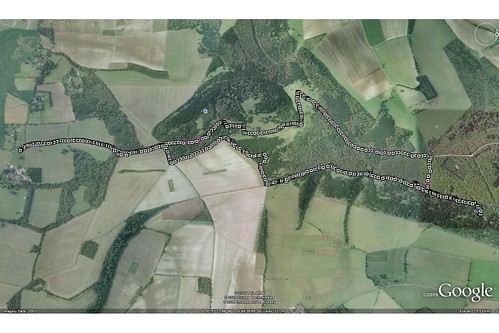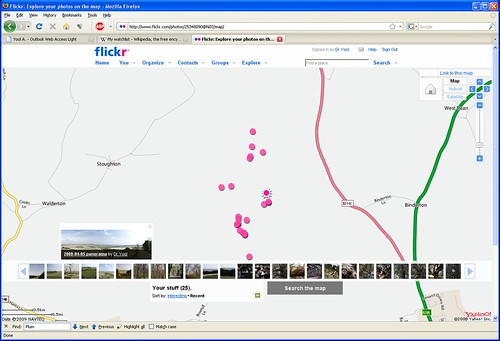Although he's well-established in the UK literary firmament (and actually quite amusing when he does turns on Radio 4), until a few months ago I'd never read anything by
Sebastian Faulks. In part, this is down to his most famous novel,
Birdsong, being set in the First World War, and me having had quite enough of that from poetry classes at highschool. And then, when I did finally read Faulks, it was his crowd-pleasing James Bond novel,
Devil May Care. While that was an enjoyable romp, it appeared hemmed in by Faulks' determination to remain "in-character" as
Ian Fleming. Buoyed up by this success, and by C's recommendation, I've now read his preceding novel,
Engleby.

Written in
first person, the novel describes the life of Mike Engleby from his formative years in private school and Cambridge University, to his subsequent career in journalism and beyond. Emotionally disconnected from his poor family, his violent father dead, his mother and sister mostly eliciting pity, Engleby cuts an odd and alienated figure. Awarded a scholarship as an underprivileged student, he experiences a typically brutalising time at his private school. At Cambridge things pick up somewhat. Although remaining largely a loner, Engleby's studies pass relatively successfully, he becomes involved to a degree in student life, and he meets a young woman, Jennifer Arkland, who he admires from afar. However, in the run up to finals, Jennifer suddenly disappears. Orbiting at the edge of Jennifer's circle, Engleby attracts the attention of the police, but her vanishing is unresolved and life goes on. Moving to London, Engleby at first applies his "
nat. sci." to writing popular science journalism, but his work is successful and he gradually rises up the journalism food chain, ultimately interviewing establishment luminaries including (the subsequently disgraced)
Jeffrey Archer. Despite this success, Engleby remains a disconnected figure, developing only loose relationships with other people and even juggling his schedule to avoid workplace interactions when he can. However, although long-forgotten, the past now re-enters Engleby's world and turns it upside-down.
The first thing to say about this book (other than to say that I'm about to reveal some fatal spoilers) is that it's probably an extremely dividing read for most readers, one that's likely to leave many hating it. The writing is superb
but, and its a big
but, its plotting contains an important element that is liable to drive many readers up the wall. In fact, when I first had my already growing suspicions confirmed, I was all set for membership of the haters club. As a first person novel, said plot element completely runs against the grain (as wittily noted in the
Guardian's
Digested Read of the novel). However, and here's where I'll be parting company with the haters, when the nature of the first person framing device is revealed, I became a lot more forgiving of the book, and by the end came to admire it.
And it's not hard to admire it. Faulks creates a great narrator in Engleby. While he's not exactly someone you'd like to know well, his take on the world is always interesting. He's also extremely funny in places. No doubt borrowing from Faulks' own background in journalism, Engleby is a misanthropic and acerbic commentator on it and on publishing in general. For instance, listening to a grandstanding speech by a literary-turned-crime novelist who claims the key to success is never using three syllable words when two will do, Engleby remarks:
"You'd think it was James Joyce up there. I mean, Christ,how
many syllables are there in the words 'it', 'butler' and 'did'?"Faulks also does a convincing job (to me anyway, C was somewhat less convinced, though she is a mental health professional) in the latter part of the novel on the more clinical aspects of Engleby's psychology. There's a lot of rather technical detail here, but Faulks integrates it into the flow of the novel well, and it never comes off as "here's some research I spent days on so absolutely have to shoe-horn into my novel" (although the nature of the narration allows some latitude in how this is actually done). What I particularly liked was its presentation of a number of competing schools of psychological thought. Coming from my own background, that seemed a rather realistic portrayal of the subject area (albeit softer, psychological science).
However, as I've indicated above, it was a bit touch and go with this novel, and with a few less deft moves Faulks could easily have come a cropper (IMHO). He stayed on just the right side of the
unreliable narrator for my liking. By way of contrast, another novel I read a while back, the
Man Booker Prize-winning novel,
The Sea, very much erred on the wrong side. It was similarly well-written, but needlessly introduced something late-on that would have been useful, but plot-damaging, to know earlier. Here, Engleby's nature, as well as the narrative's framing rationale, make the unreliable narration explicable. In the case of
The Sea, the unreliability seems only because the novelist couldn't plot well enough, with the result that the reader (this reader at least) feels a bit robbed at the end. Not a good way to finish a book - the Man Booker judges should have been a bit less forgiving.
Anyway, I don't know if I'd recommend this one, but I'll be keeping an eye on Faulks in the future. Unless, that is, he writes more First World War stuff!


















